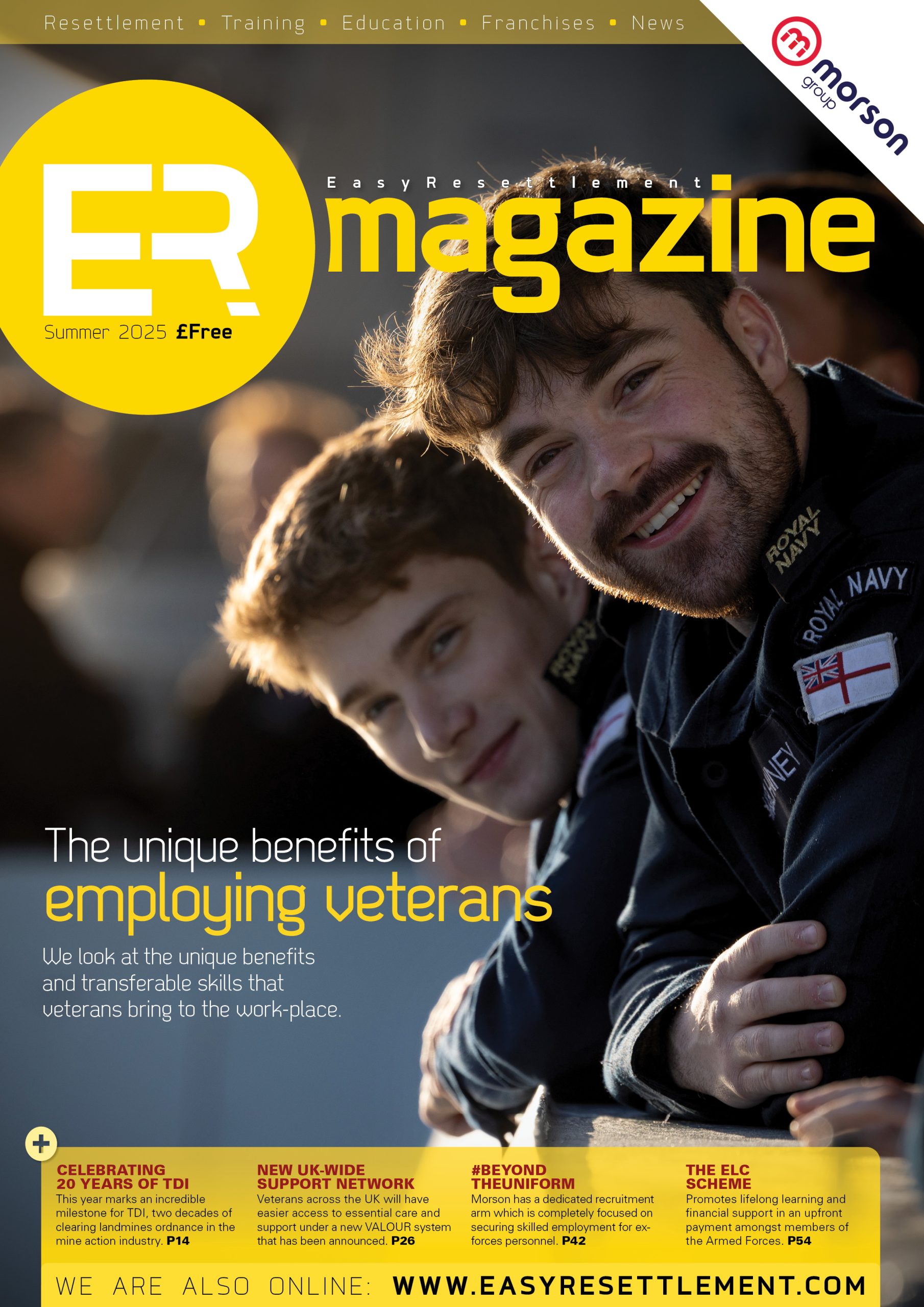Mentoring
Most service leavers thrive in civilian life. However, some may struggle if complications aren’t addressed early enough and this may lead to more drastic intervention later on.
Issues that some service leavers may face are often centred around employment, housing, finance and dependency.
SSAFA, the Armed Forces charity runs a mentoring service to support service leavers as they return to civilian life. The scheme provides support for Wounded, Injured and Sick (WIS) personnel leaving the services. In 2018, SSAFA supported 219 service leavers who were having difficulties with the initial phase of transition into civilian life.
SSAFA is also now running a trial at Catterick Garrison, working with the Ministry of Defence, the Army and the Career Transition Partnership. This trial will open up the service to anyone who leaves the military at Catterick Garrison whether they’ve served for one day or 20 years.
SSAFA mentors can help with practical and emotional support, assisting with decision making, supporting career moves and offering independent and confidential advice. This could include advice on how to pay bills, access a GP or dentist, find suitable housing, help writing CVs and encouraging new activities to avoid social exclusion.
SSAFA will always be there for serving personnel, veterans and their families in their time of need – and we are proud to offer lifelong support. The MoD funds many projects that support veterans which SSAFA is involved in, including Veteran’s Gateway that supports veterans in need and the Armed Forces Covenant. We know that transition is a pivotal time for those leaving the Forces but often issues that we see do not manifest into a problem until much later. This is where the SSAFA mentoring project looks to supplement the support of the Army to ensure that issues like these do not develop due to early intervention.
How SSAFA mentoring can help?
When Jack Valentine was medically discharged from the Royal Navy in 2017 he was left facing an uncertain future at the age of just 25. Jack developed mental health problems just weeks after passing his basic training and saw his long-held dream of a military career slip away from him. Now with the support of his SSAFA mentor, Darren Mayne, and his dog Chief, Jack is back on track and planning for the future.
After initially training as a chef, Jack joined the Royal Navy as an Air Technician. He said: “I struggled with the reading required and they realised I was dyslexic so I changed to Seaman Specialist. That was my idea of what the Navy was – driving boats, resupply, I loved all the training.”
After passing his basic training in February 2016 Jack went on to complete his Phase 2 Seaman Specialist training and was posted to Devonport. He said: “Unfortunately, within a couple of weeks of being on ship my mental health really deteriorated. It was a bit out of the blue and I think I thought it was just normal at the time. Things went badly wrong the first night out with the crew drinking after work. I thought I was having a great night out but it’s all a blank. I got arrested and woke up in a cell.”
Jack was treated at a psychiatric unit but the episode marked the end of his Navy career and in April 2017 he was medically discharged. He said: “Despite everything that happened in that time I made the most of it and got my learning credits and did a couple of courses.”
During his resettlement process Jack found out about the SSAFA mentoring scheme and he has been meeting volunteer mentor Darren Mayne regularly since he returned to the North East following his medical discharge. He said: “Darren is a legend. He has been absolutely brilliant – helping me with writing a CV and interview techniques. If I feel like I can’t leave the house, he understands and will let me rearrange. We meet at a coffee shop and sit outside so my dog Chief can come too.
“I had left a lot of my old life behind when I signed up so I had no stability when I came out the Navy. I tried to implement things in my civilian life but it was hard. Darren has effectively been my reference point for a lot things – someone I can talk to. Sometimes we take Chief for a walk and might not talk about much but any help I have needed he has always known where to go and he has been so helpful while I have been applying for jobs.
With Darren’s help he has recently found a new role in the security industry. “It’s a good job – three days on and three days off. I know what shifts I will be doing so I can plan and have a proper life outside work. Ideally, I’d like to find some form of apprenticeship, maybe as a mechanic, where I would be busy all day, where I had a purpose, where I would be valued.”
In the meantime, Jack has found himself somewhere to live, passed his driving test and taken in Dalmatian puppy Chief – now an important part of his life. He said: “If there is anything wrong with me Chief just plants himself on me and doesn’t move anywhere. I’ve had him since he was nine weeks old. I have got the best medication I could ask for in Chief.”
Amey working with SSAFA to support veterans and Reservists
Last year, Amey was awarded the Armed Forces Covenant Gold Award for supporting those transitioning from the military into a new career, employing veterans and providing flexibility for Reservists.
In 2015, Amey Defence Services partnered with SSAFA, the Armed Forces charity, and made a commitment to raise £250,000 within the five years of our contracts. Having now passed the £225,000 mark, our fundraising has helped to support 219 wounded, injured or sick Service leavers and those struggling with the transition.
www.amey.co.uk
Attracting and recruiting talent
Attracting and recruiting talented ex-military personnel is important to us. Gary Charman is a great example, having joined our team as a Delivery Manager after serving in the Royal Navy for 15 years.
Gary said “I was apprehensive to be leaving the Services for the FM world but I soon realised how similar it is. We deliver the same services such as heating and hot water but the buildings we look after don’t go off on exercise or deployment. My military background allows me to apply my knowledge and attitude gained within the military to my current role.”
Gary is really enjoying his role with Amey and has some advice for anyone leaving the Forces looking for employment.
“The biggest hurdle on leaving the Services is to understand how your experiences can be applied in the ‘real world’. There is lots of help through resettlement and training courses and those lucky enough to have access to roles offered by the likes of Amey would definitely find the transition relatively easy.”
Attracting and recruiting talented ex-military personnel is important to us. Gary Charman is a great example, having joined our team as a Delivery Manager after serving in the Royal Navy for 15 years.
Gary said “I was apprehensive to be leaving the Services for the FM world but I soon realised how similar it is. We deliver the same services such as heating and hot water but the buildings we look after don’t go off on exercise or deployment. My military background allows me to apply my knowledge and attitude gained within the military to my current role.”
Gary is really enjoying his role with Amey and has some advice for anyone leaving the Forces looking for employment.
“The biggest hurdle on leaving the Services is to understand how your experiences can be applied in the ‘real world’. There is lots of help through resettlement and training courses and those lucky enough to have access to roles offered by the likes of Amey would definitely find the transition relatively easy.”

